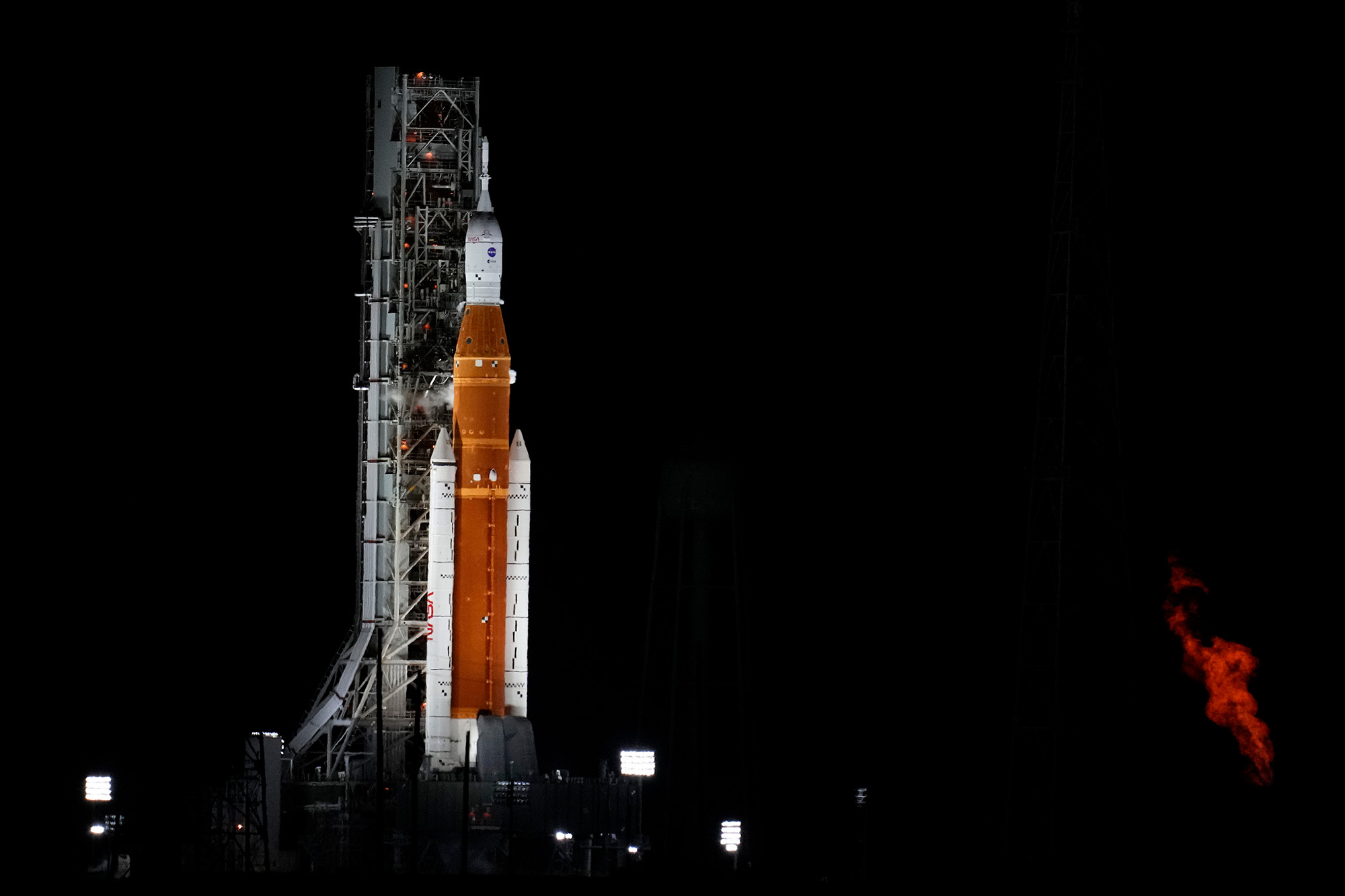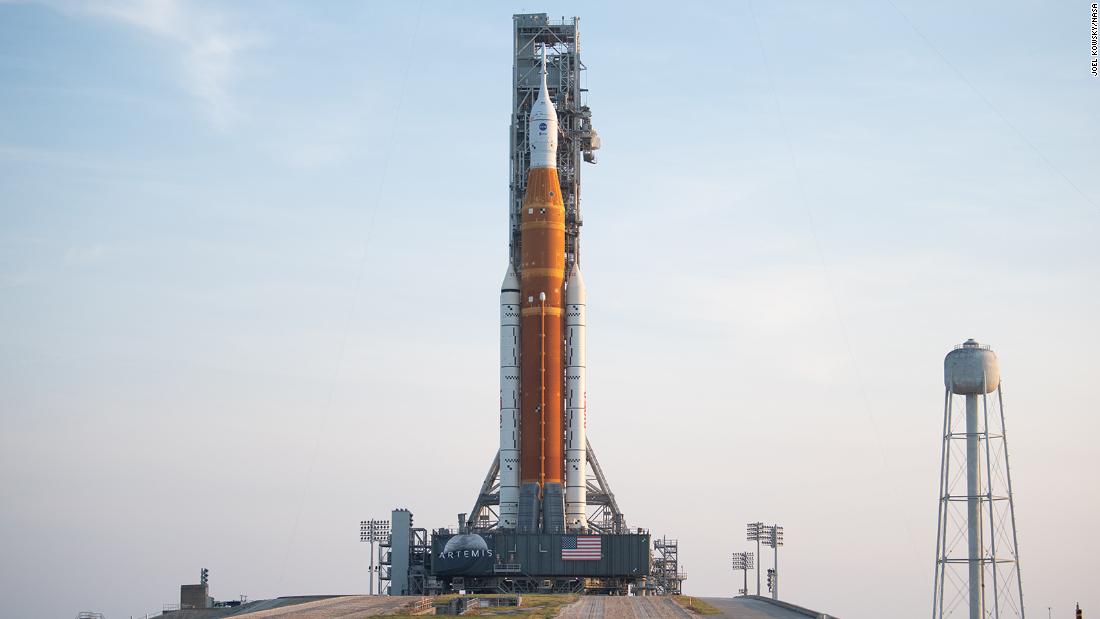
Several issues have cropped up since the Artemis I began fueling after midnight. The launch team is evaluating the delays to determine how it impacts the launch.
First, the weather: Offshore storms with the potential for lightning prevented the team from beginning the fueling process, due to start at midnight, for about an hour.
The hold was lifted at 1:13 a.m. ET, and the tanking process began to load the rocket’s core stage with supercold liquid oxygen and liquid hydrogen.
Then, an initial leak and pressure spike: The team stopped filling the tank with liquid hydrogen twice due to an initial leak as well as a pressure spike, but tanking resumed for the core stage and began for the upper stage, or the interim cryogenic propulsion stage.
Now, an engine bleed: The launch team discovered an issue with an engine bleed in one of the rocket’s four engines. During engine bleeds, hydrogen is cycled through the engine to condition it for launch. Three of the four engines were performing as expected, but engine #3 was experiencing an issue.
The addition of frost: The team also discovered a line of frost on the inner stage flange. At first, engineers thought the frost may indicate the presence of a crack in the tank, but it turned out to be a crack in the external foam. The team shared that the issue has been resolved since the foam crack does not indicate a leak.
Engineers are also working to find out what has caused an 11-minute delay in communications between the Orion spacecraft and ground systems. The issue could impact the beginning of terminal count, or the countdown that begins when 10 minutes remain on the clock before liftoff. But engineers feel good about figuring out the issue ahead of the terminal count, according to NASA.







More News
Paramedic Avoids Prison in Death of Elijah McClain
For Fox News and Conservative Media, Student Protests Are a Familiar Target
Tabloid Publisher Defiant as Trump Lawyer Tries to Shake His Confidence